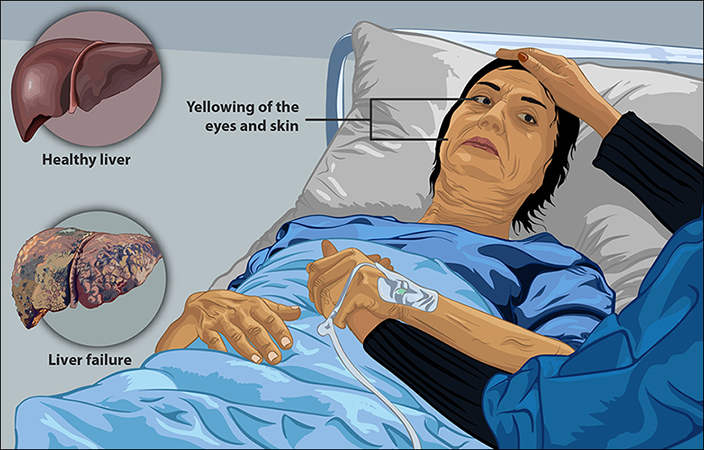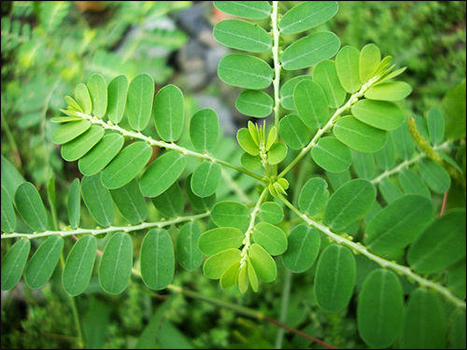
In the recent years, liver has been exposed to serious damage due to certain lifestyle changes such as more dependency on processed and packaged foods, use of systemic drugs such as oral contraceptives, pesticides, agro-chemicals etc. Addiction to alcohol have aggravated the problem resulting into liver failure.
Ayurvedic View
In 19th chapter of Sutra Sthana and 13th chapter of Chikitsa Sthana, Master Charak has enumerated eight types of udar roga. Liver disorders are one of them. Similarly, Master Sushruta has also included liver disorders among eight types of Udar Roga.
Ayurveda has many propositions to hepatobiliary disorders which are akin to understanding of hepatology. Ayurveda approaches various herbal, herbo-mineral dietary interventions to prevent and treat such conditions.
Herbs for Liver Failure
1. Punarnava (Boerhavia diffusa)
Punarnava is commonly known as Hog weed. The roots of Punarnava are commonly used in Ayurvedic practice for liver pathologies, iron deficiency, kidney disorders and several other health conditions. It reduces the levels of bilirubin, improves appetite, jaundice etc. and improves liver health due to its anti-oxidant property which prevents liver cell damage caused by free radicals.

2. Bhumi amla (Phyllanthus niruri)
The whole plant of Bhumi amla possesses medicinal properties. Bhumi amla is commonly known by the name Feather Foll. It reverses any damage caused to the liver. Due to its pitta dosha balancing property, it is considered as an excellent remedy for liver disorders. This herb is highly recommended in Hepatitis as it cures inflammation of the liver thus preventing liver failure. This herb is very dry, bitter, light, cooling, soothing and cleansing in nature thus pacifies both pitta and kapha doshas.
3. Kalmegh (Andrographis paniculata)
Kalmegh is commonly known as “King of Bitters” and “Green Chiretta”. This herb is mainly used for liver problems as it is anti-oxidant and anti-inflammatory in nature. It induces the discharge of bile from the liver therefore it improves appetite. Kalmegh is useful in expelling vitiated Pitta. It is bitter in taste yet nourishing in nature and helpful in the treatment of liver failure.
4. Bhringraj (Eclipta alba)
Bhringraj plant commonly known as Eclipta has hepatoprotective properties and considered as a rejuvenating plant in Ayurveda. It improves metabolism, reduces fat accumulation, protects the liver from certain infections and against damage caused by free radicals, destroys toxins, excessive kapha dosha, reduces inflammation and improves the functions of liver.
5. Kutaki (Picrorhiza kurroa)
Kutaki has been commonly used and well-investigated for the treatment of liver disorders. Due to kapha-pittahar, deepan, lekhan, pittavirechaka properties, it is widely used in liver disorders. It is categorized under group of herbs that are piercing and cause purgation. It boosts many liver enzymes and supports detoxification of liver and can be used for various hepatic disorders without any side effects. It has a deeply cleansing action on liver and gall bladder. This herb balances both Pitta and Kapha dosha.
6. Makoy (Solanum nigrum)
Makoy is commonly known as Black Night Shade plant. This plant is considered as Tridoshghan which means it balances all the three vitiated doshas. It is used for the treatment of liver, spleen and other abdominal organs. Makoy has hepato-protective action and useful in liver disorders for reducing hepatic inflammation, jaundice etc. The leaves of the plant are rich in anti-oxidants and administered for liver failure.
Diet and Lifestyle
Imbalanced food habits result in abnormal secretion of digestive juices and hepatic dysfunction.
- Lifestyle for improving liver’s health includes smoke-free and alcohol- free life.
- Avoid the situations that lead to stress or anger.
- Preserved and canned foods must be avoided.
- Cold-drinks, preserved juices, tea/coffee are harmful for liver.
- Avoid milk and dairy products.
- Egg whites are okay to take.
- Multigrain flour is a good option to have.
- All gourd veggies are best.
- Apple, pear and papaya can be taken.
- Water intake must be restricted in case of ascites and body swelling.
Disclaimer:-
This article is not a substitute to the standard Medical Diagnosis or personalized Ayurvedic Treatment! It is intended only for Information!
For experts consultation, please write us at care@blessayurveda.com or click here to book appointment to consult online.
1,707 total views, 3 views today